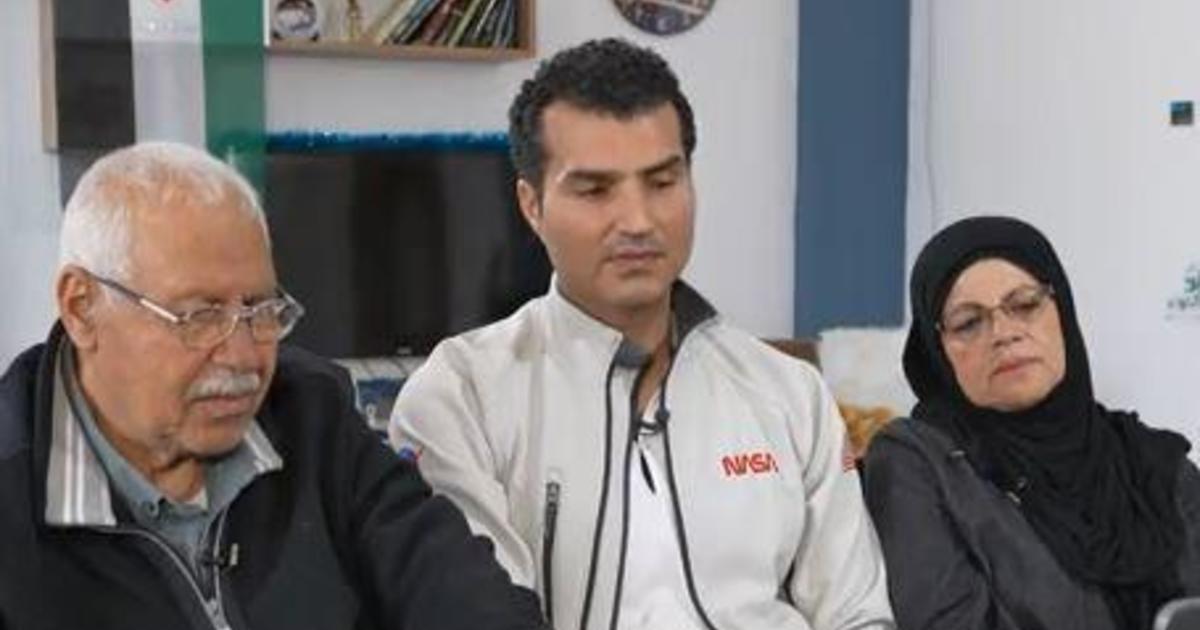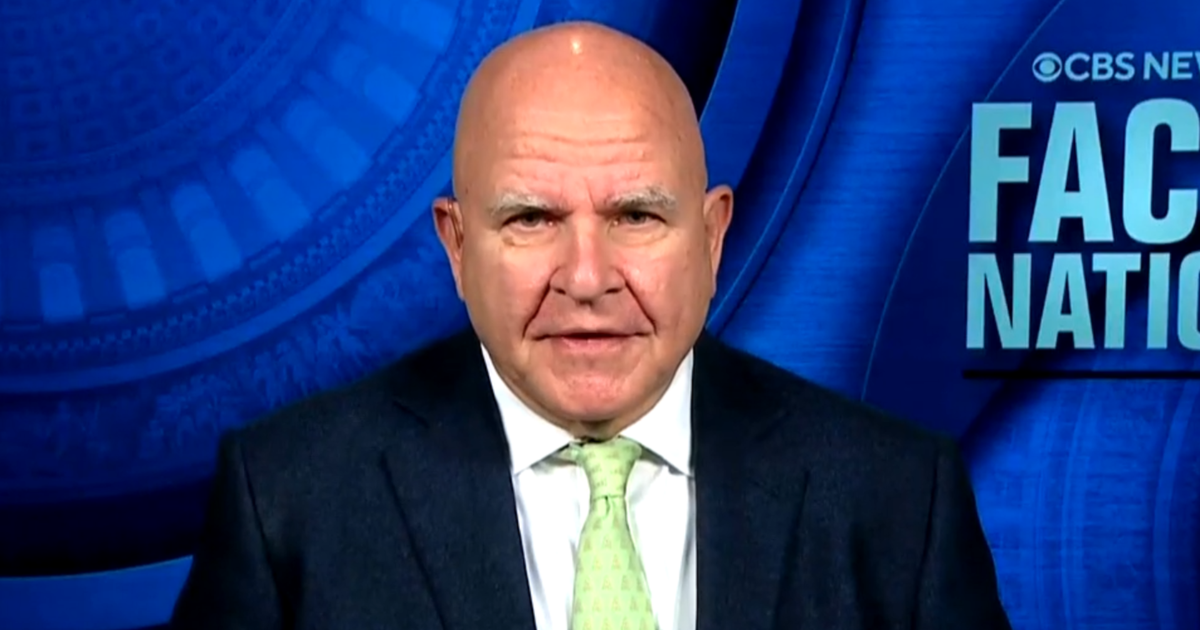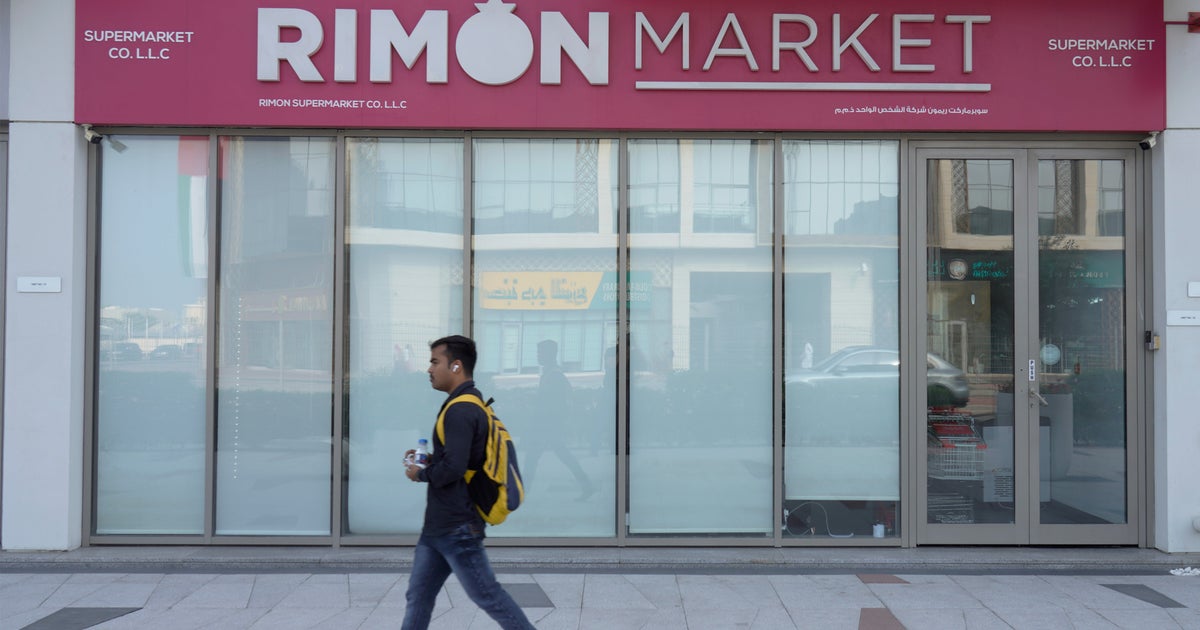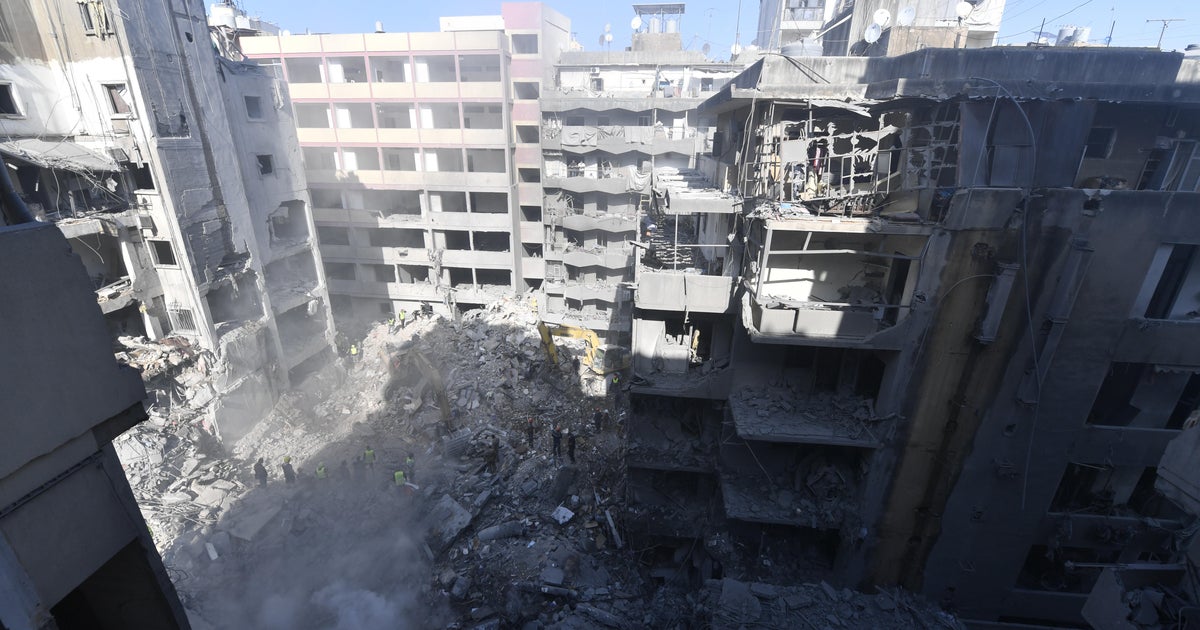CBS News
Loay Elbasyouni “gave up hope many times” that his parents would escape Gaza City. Here’s how he saved them.

Israeli Prime Minister Benjamin Netanyahu appears set to defy warnings from the United States and many other countries and organizations by ordering his forces to move into the southern Gaza city of Rafah. More than 1.5 million Palestinians — many of them displaced multiple times already during four months of war between Israel and Gaza’s Hamas rulers — have crammed into Rafah, on Israel’s orders.
But not all of Gaza’s civilians fled to the south. Some of them simply couldn’t.
Mohammed and Alia Elbasyouni stayed in Gaza City, the biggest metropolis in the Palestinian territory, during four months of bombardment despite the Israel Defense Forces’ order to evacuate.
They stayed put, they told CBS News, because they were too elderly to leave on foot with the thousands of others who sought safety in southern Gaza.
The couple’s son Loay is a U.S. citizen who lives in Los Angeles and helped design a robotic helicopter for NASA that was used on a Mars mission. He said his parents were among the last five civilians stuck in the old center of Gaza City, and being so far away, with them trapped in a warzone, was torture.
“They had almost no food. They had no water. My mom wasn’t drinking and trying to save water for my dad,” he told us. “My dad had a heart condition. There was nobody to help him. He couldn’t breathe. My mom thought he was dying.”
“Death was every moment,” Alia told CBS News. “We were living in stress and indescribable fear. Shelling 24 hours a day over our heads. Scared, and we couldn’t do anything, and you hear screaming all the time.”
Loay was convinced that his parents would never make it out of the decimated Gaza Strip, but the electrical engineer didn’t stop looking for an escape route.
“I started working on it after the third day of the war,” he said, “speaking to probably hundreds of people, trying a lot of avenues, you know, and like, almost every single avenue failed.”
He said it was made far more complicated by the fact that his parents cannot walk on their own, “so I had to figure out a way to send an ambulance to them, to pick them up from Gaza City and get them to Rafah.”
“I gave up hope many times,” he admitted, but he said every day he would wake up and think, “let me try one more avenue.”
Eventually his tireless efforts paid off, and with help from Turkish authorities, Loay arranged for his parents to be ferried out of Gaza City in an ambulance convoy to make the roughly 20-mile journey south to Rafah — the only place in Gaza with a border crossing that’s been open at all since the war started.
On a first attempt, the family said the convoy came under fire.
“It was an ambulance convoy of the three ambulances and a bus,” Loay said. His parents were in the second or the third ambulance, and after they were collected by the Palestinian Red Crescent team, “they were attacked.”
It was never clear who opened fire, but Loay’s parents said one medic was killed and at least two other people injured. With no other option, however, they tried again, and the second time they made it to Rafah. His parents crossed the border into Egypt, and then Loay was finally reunited with them in Turkey, where they all spoke with CBS News.
CBS News
Alia said being back together with her son was “indescribable — but I am sad for our people. We are happy, but also not happy because we left our families without even seeing them — our family, friends, our country is in total ruin.”
Now, with the threat of a looming Israeli ground assault like the one they escaped from in Gaza City, the elderly couple worry about those friends and family they left behind in Rafah.
If there is an invasion, Mohammed told CBS News, “a large number of civilians will die. A large number will be wounded.”
CBS News
Couple charged for allegedly stealing $1 million from Lululemon in convoluted retail theft scheme

A couple from Connecticut faces charges for allegedly taking part in an intricate retail theft operation targeting the apparel company Lululemon that may have amounted to $1 million worth of stolen items, according to a criminal complaint.
The couple, Jadion Anthony Richards, 44, and Akwele Nickeisha Lawes-Richards, 45, were arrested Nov. 14 in Woodbury, Minnesota, a suburb of Minneapolis-St. Paul. Richards and Lawes-Richards have been charged with one count each of organized retail theft, which is a felony, the Ramsey County Attorney’s Office said. They are from Danbury, Connecticut.
The alleged operation impacted Lululemon stores in multiple states, including Minnesota.
“Because of the outstanding work of the Roseville Police investigators — including their new Retail Crime Unit — as well as other law enforcement agencies, these individuals accused of this massive retail theft operation have been caught,” a spokesperson for the attorney’s office said in a statement on Nov. 18. “We will do everything in our power to hold these defendants accountable and continue to work with our law enforcement partners and retail merchants to put a stop to retail theft in our community.”
Both Richards and Lawes-Richards have posted bond as of Sunday and agreed to the terms of a court-ordered conditional release, according to the county attorney. For Richards, the court had set bail at $100,000 with conditional release, including weekly check-ins, or $600,000 with unconditional release. For Lawes-Richards, bail was set at $30,000 with conditional release and weekly check-ins or $200,000 with unconditional release. They are scheduled to appear again in court Dec. 16.
Prosecutors had asked for $1 million bond to be placed on each half of the couple, the attorney’s office said.
Richards and Lawes-Richards are accused by authorities of orchestrating a convoluted retail theft scheme that dates back to at least September. Their joint arrests came one day after the couple allegedly set off store alarms while trying to leave a Lululemon in Roseville, Minnesota, and an organized retail crime investigator, identified in charging documents by the initials R.P., recognized them.
The couple were allowed to leave the Roseville store. But the investigator later told an officer who responded to the incident that Richards and Lawes-Richards were seasoned shoplifters, who apparently stole close to $5,000 worth of Lululemon items just that day and were potentially “responsible for hundreds of thousands of dollars in loss to the store across the country,” according to the complaint. That number was eventually estimated by an investigator for the brand to be even higher, with the criminal complaint placing it at as much as $1 million.
Richards and Lawes-Richards allegedly involved other individuals in their shoplifting pursuits, but none were identified by name in the complaint. Authorities said they were able to successfully pull off the thefts by distracting store employees and later committing fraudulent returns with the stolen items at different Lululemon stores.
“Between October 29, 2024 and October 30, 2024, RP documented eight theft incidents in Colorado involving Richards and Lawes-Richards and an unidentified woman,” authorities wrote in the complaint, describing an example of how the operation would allegedly unfold.
“The group worked together using specific organized retail crime tactics such as blocking and distraction of associates to commit large thefts,” the complaint said. “They selected coats and jackets and held them up as if they were looking at them in a manner that blocked the view of staff and other guests while they selected and concealed items. They removed security sensors using a tool of some sort at multiple stores.”
CBS News contacted Lululemon for comment but did not receive an immediate reply.
CBS News
Former Trump national security adviser says next couple months are “really critical” for Ukraine

Washington — Lt. Gen. H.R. McMaster, a former national security adviser to Donald Trump, said Sunday that the upcoming months will be “really critical” in determining the “next phase” of the war in Ukraine as the president-elect is expected to work to force a negotiated settlement when he enters office.
McMaster, a CBS News contributor, said on “Face the Nation with Margaret Brennan” that Russia and Ukraine are both incentivized to make “as many gains on the battlefield as they can before the new Trump administration comes in” as the two countries seek leverage in negotiations.
With an eye toward strengthening Ukraine’s standing before President-elect Donald Trump returns to office in the new year, the Biden administration agreed in recent days to provide anti-personnel land mines for use, while lifting restrictions on Ukraine’s use of U.S.-made longer range missiles to strike within Russian territory. The moves come as Ukraine marked more than 1,000 days since Russia’s invasion in February 2022.
Meanwhile, many of Trump’s key selection for top posts in his administration — Rep. Mike Waltz for national security adviser and Sens. Marco Rubio for secretary of state and JD Vance for Vice President — haven’t been supportive of providing continued assistance to Ukraine, or have advocated for a negotiated end to the war.
CBS News
McMaster said the dynamic is “a real problem” and delivers a “psychological blow to the Ukrainians.”
“Ukrainians are struggling to generate the manpower that they need and to sustain their defensive efforts, and it’s important that they get the weapons they need and the training that they need, but also they have to have the confidence that they can prevail,” he said. “And any sort of messages that we might reduce our aid are quite damaging to them from a moral perspective.”
McMaster said he’s hopeful that Trump’s picks, and the president-elect himself, will “begin to see the quite obvious connections between the war in Ukraine and this axis of aggressors that are doing everything they can to tear down the existing international order.” He cited the North Korean soldiers fighting on European soil in the first major war in Europe since World War II, the efforts China is taking to “sustain Russia’s war-making machine,” and the drones and missiles Iran has provided as part of the broader picture.
“So I think what’s happened is so many people have taken such a myopic view of Ukraine, and they’ve misunderstood Putin’s intentions and how consequential the war is to our interests across the world,” McMaster said.
On Trump’s selections for top national security and defense posts, McMaster stressed the importance of the Senate’s advice and consent role in making sure “the best people are in those positions.”
McMaster outlined that based on his experience, Trump listens to advice and learns from those around him. And he argued that the nominees for director of national intelligence and defense secretary should be asked key questions like how they will “reconcile peace through strength,” and what they think “motivates, drives and constrains” Russian President Vladimir Putin.
Trump has tapped former Rep. Tulsi Gabbard to be director of national intelligence, who has been criticized for her views on Russia and other U.S. adversaries. McMaster said Sunday that Gabbard has a “fundamental misunderstanding” about what motivates Putin.
More broadly, McMaster said he “can’t understand” the Republicans who “tend to parrot Vladimir Putin’s talking points,” saying “they’ve got to disabuse themselves of this strange affection for Vladimir Putin.”
Meanwhile, when asked about Trump’s recent selection of Sebastian Gorka as senior director for counterterrorism and deputy assistant to the president, McMaster said he doesn’t think Gorka is a good person to advise the president-elect on national security. But he noted that “the president, others who are working with him, will probably determine that pretty quickly.”
CBS News
Sen. Van Hollen says Biden is “not fully complying with American law” on Israeli arms shipments

Watch CBS News
Be the first to know
Get browser notifications for breaking news, live events, and exclusive reporting.









